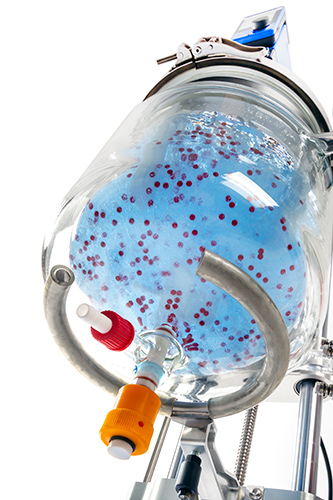Pilot-scale manufacturing is a valuable precursor to full-scale production. It ensures a cost-effective approach to research and development (R&D), scale-up, and eventual commercial production of key drug compounds. Generally, pilot manufacturing is preceded by kilo lab process chemistry results. Kilo labs and pilot-scale plants are both similar in scale and batch mechanisms, with the names sometimes used interchangeably, however their specifications are dependent on their application from lab-to-lab. For some labs, both are used to enable greater process testing using non-cGMP kilo labs whilst maintaining large-scale cGMP compliant manufacturing with pilot-scale manufacturing.
Process development in the pharmaceutical industry is extremely complex and fraught with regulatory oversight. Drug pipelines must be robust to ensure that only the highest quality final products are released to markets, which requires absolute care through the numerous interlinked manufacturing processes. If process chemists don’t spot potential problems at the earliest possible stage, it can lead to high costs down the line. Pilot plants and kilo labs ease the burden of transitioning lab-scale synthesis to the large scale.

What Exactly is Pilot Scale Process Chemistry?
A pilot-scale lab intersects many chemical engineering projects between early-phase development and pilot-scale manufacturing. The outset of R&D for new cosmetics, nutraceuticals, pharmaceuticals, and other speciality chemicals involves lab-based investigations. Organic chemistry specialists spend time at the benchtop attempting to synthesise tiny amounts of candidate molecules from small initial reactant volumes, whether these are potential chemical building blocks or novel active pharmaceutical ingredients (APIs), which is ideal for initial testing and screening.
Unfortunately, these meticulous approaches to process chemistry don’t translate well when larger quantities of the product are required. Scaling up from the benchtop to the plant can lead to significant alterations in the molecule’s safety impurity profiles and can have a demonstrable effect on yields.
Kilo lab and pilot scale process chemistry allows users to develop those initial results into scalable synthetic routes. It is so-called because kilo labs can produce kilogram (kg) quantities of target ingredients by mimicking plant conditions.
How Early Phase Process Chemistry Works
The working principles of a kilo lab are pretty simple: they deploy batch system reactions with large glass vessels to produce more significant quantities of material than is typically possible in the lab. Although systems vary, pilot-scale lab reactors typically cover vessel sizes from 50 L up to 100 L.
The critical benefit of kilo lab and pilot-scale process chemistry is their ability to provide crucial information about important aspects of a target compound which may underlie its economic viability. In simple terms: pilot-scale manufacturing saves time and resources while allowing for investigations into manufacturing variables which reduces waste, ultimately achieving the maximum efficiency of the large-scale reaction.
Critical Benefits of Pilot Scale Process Chemistry
- Save time and money: By exploring the scalability of candidate materials through pilot-scale manufacturing, you can assess whether scaling up is even possible. If you determine viability, the pilot plant can help you optimise development, so transfer to the industrial plant is as efficient as possible.
- Non cGMP pilot-scale labs also exist, but are less common—remember to check your compliance requirements!
- Batch production possibilities: Pilot scale process chemistry enables you to produce advanced, pre-clinical compounds and speciality chemicals at the kilogram scale.
- High degrees of flexibility: Flexibility is central to pilot plant functionality; reactors can typically accommodate a range of complex chemical reactions and are usually configured for a degree of
Looking for Pilot Lab Solutions?
At Asynt, we provide the ideal solution for your kilogram-scale process chemistry requirements. Our ReactoMate PLUS Pilot Systems are highly flexible reactors equipped with dismountable jacketed vessels, a high-speed overhead stirrer, and various accessories to accommodate various reaction requirements.
Potential accessories could include our CondenSyn MAXI, a waterless condenser for large scale reactors, available with both reflux or distillation fittings.
Additionally, IKA offers overhead stirrers for a large range of volumes, with one of their largest and most powerful recommended for up to 80 L.
Suitable for kilo labs up to 50 L, the ReactoMate QUANTUM-PLUS Support is an ideal set up for growing labs exploring kilogram scales.
If you are interested in finding out more, contact a member of the Asynt team today.
Contact form
References:




